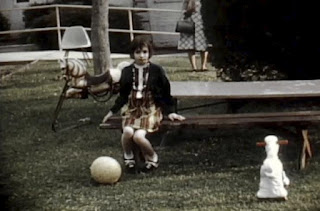Some of the costliest mistakes ever made in history
1. China’s tower block collapse: It’s not often you see entire apartment complexes tip over, but that’s exactly what happened at Shanghai’s Lotus Riverside complex. The fall, which was caused by a faulty foundation, victimized quite a few apartments valued at $264 per square foot. Naturally, investors demanded their money back.2. The lost bitcoin fortune: If you were lucky enough to invest in the online currency Bitcoin during its early years, you’d find it was a fruitful investment. That’s a fact Welsh IT worker James Howells has likely lost a lot of sleep over: his collection of 7,500 bitcoins grew to be worth $7.5 million in 2013. The problem? He accidentally threw the money away when he discarded his hard drive.3. Apple’s third founder: Apple founders Steve Jobs and Steve Wozniak became household names as their tech company skyrocketed to fame. They might have had to share their success with a third founder, Ron Wayne, had he not sold his equity in 1976. Grated by Jobs, Wayne cashed out his 10 percent share of Apple for $800 early in the company’s history. If he’d held out until 2013, that same equity would have been worth $35 billion.4. The Mars climate orbiter: It wasn’t a mechanical failure that cost NASA $327.6 million after the Mars Orbiter went down in a fiery blaze; it was human error. The teams tasked with navigating the orbiter used two different measurement systems while calculating trajectories—one team used metric, while the other used imperial. Whoops.5. The Millennium Bridge: When calendars flipped to the year 2000, England welcomed the new millennium with a big, beautiful bridge over the River Thames. Only three hours after its opening, however, the bridge needed to be shut down. Apparently, engineers didn’t realize that the bridge’s heavy foot traffic would cause it to sway back and forth. The issue required an additional $6.6 million—on top of the $24.1 million already spent—to fix the issue.6. Russia sold Alaska: In what might have been one of the worst trade deals in the history of trade deals, Russia dumped the territory of Alaska on the United States for the low fee of $7.2 million. Only 50 years later, Americans discovered quite a bit of gold in the Last Frontier, and the Klondike Gold Rush started, making the U.S. territory worth more than 100 times the original purchasing price.7. The too-heavy submarine: The thing about submarines is that they aren’t supposed to sink uncontrollably. In 2013, Spanish officials found they’d violated that golden rule when their new $2.3 billion submarine was 77 tons overweight thanks to a decimal error by an engineer. They couldn’t just stick the submarine on a low-carb diet to fix the issue; instead, they needed $11.9 million and an additional three years to have it sea-ready.8. Japan’s stock market error: In 2005, a Japanese stockbroker set the value of J-Com’s share price to one yen for 610,000 shares. The problem was that he was supposed to have set it to 610,000 yen forone share. That error costed J-Com 27 billion yen—or about $236 million—which was the near equivalent to their previous years’ total income.9. France’s fat trains: In 2014, the French train company SNCF realized they’d made a grave calculation error. See, they had just purchased 2,000 trains for $20 billion. But the trains were too fat to fit into most stations. The company had to pay an additional $68 million to widen some stations’ platforms.10. Kurt Russell destroys a guitar: There’s a scene in the 2015 Quentin Tarantino movie The Hateful Eight where Kurt Russell’s character destroys a guitar. No one told him, though, that the guitar was an authentic, priceless instrument from the 1870s that was on loan from a Pennsylvania museum. Russell’s dedication to acting ended up actually destroying the artifact.11. An expensive comma: Canadian phone company Bell Aliant managed to escape an $888,888 contract with Rogers Communications thanks to a comma error. According to The New York Times, the contract said: “This agreement shall be effective from the date it is made and shall continue in force for a period of five (5) years from the date it is made, and thereafter for successive five (5) year terms, unless and until terminated by one year prior notice in writing by either party.” Courts ruled the second comma meant the automatic renewal was not, in fact, automatic.12. Howie Hubler’s trading loss: There have been better times in history to be a stock trader than the early 2000s, but for as bad as the market was, no one fared quite as poorly as Howie Hubler. The Morgan Stanley employee sold insurance on AAA-rated mortgages that ended up having no value and caused a $9 billion trading loss.13. Oil spill on the Deepwater Horizon: Cost-cutting measures ended up costing BP $60.9 billion when some lousy cement aided in the leaking of 4.9 million barrels of oil into the Gulf of Mexico. Still the biggest oil spill of its kind, the disaster atDeepwater Horizonwas a financial crisis on a scale that was rarely seen.
Sources:
- Get link
- X
- Other Apps




Comments
Post a Comment